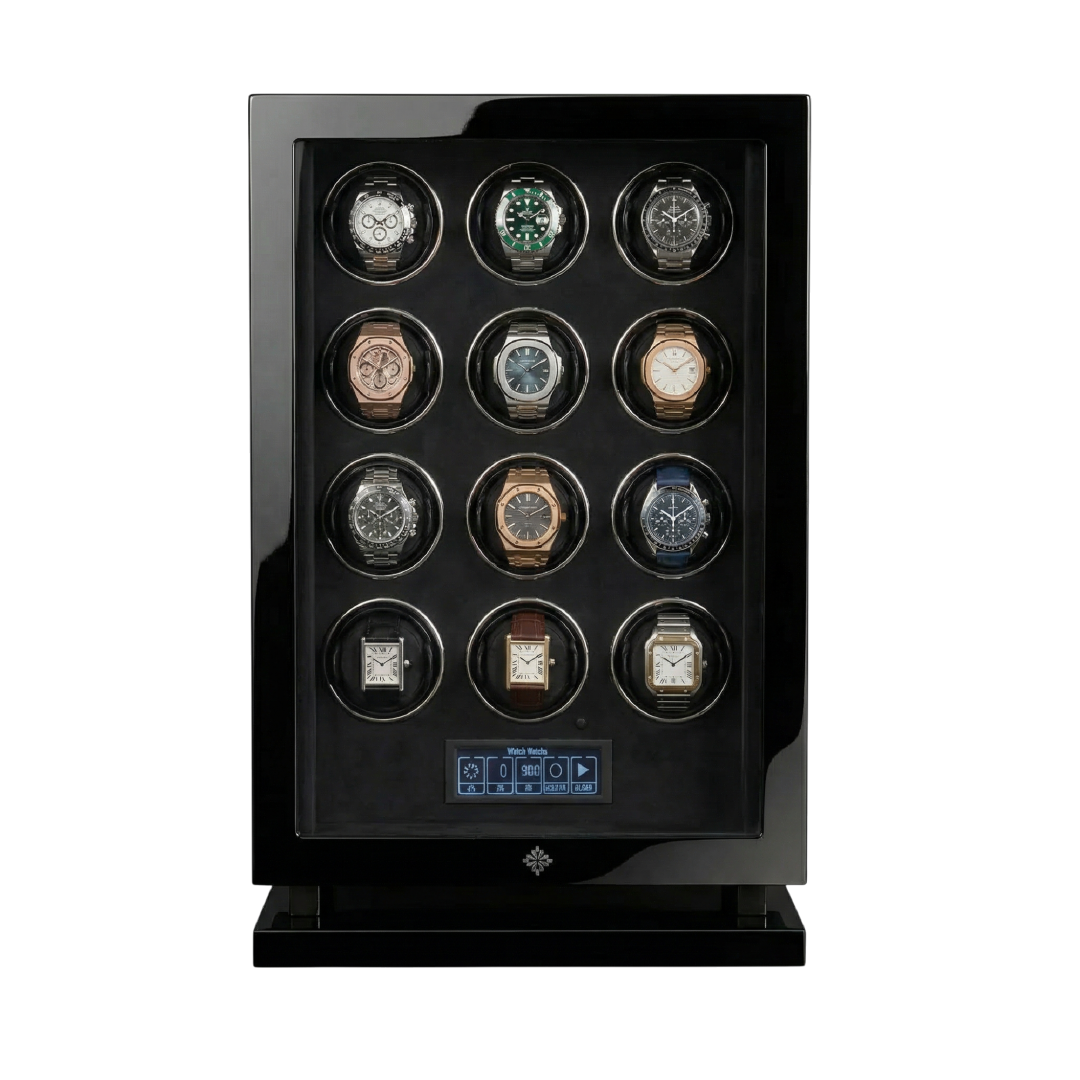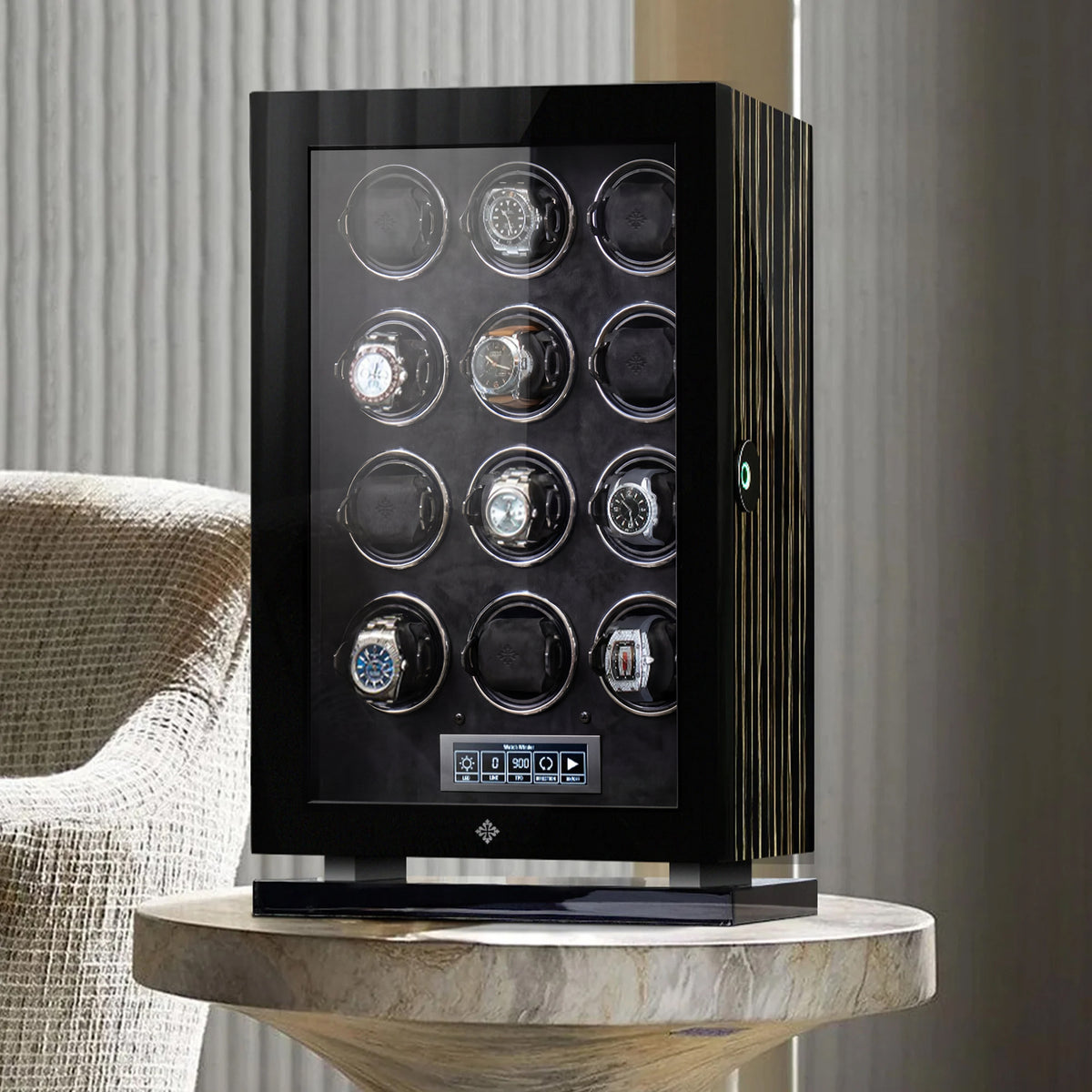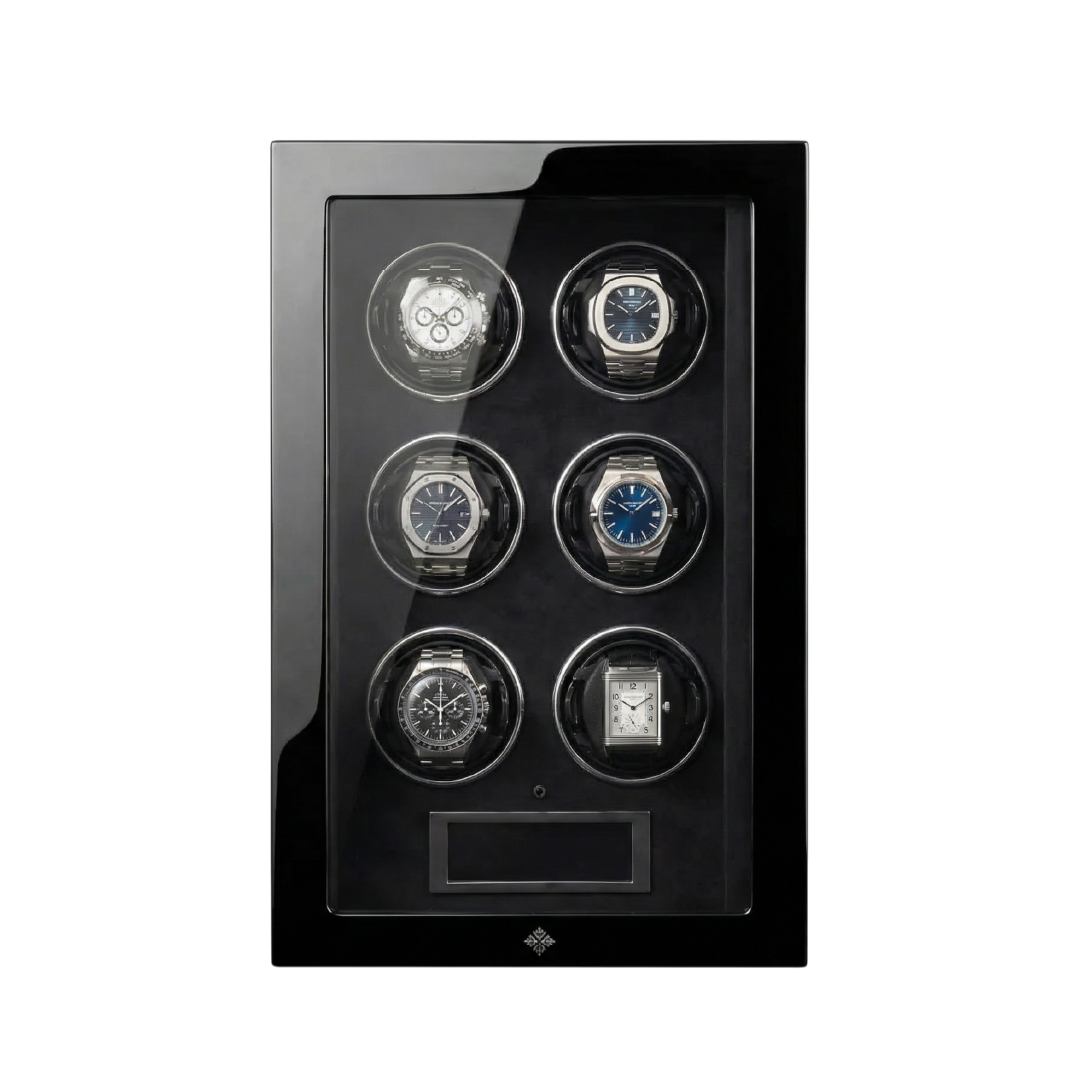Imagine a world where things can float in the air as if by magic. Well, with magnetic levitation technology, this isn't just a scene from a science fiction movie; it's real science at work today! Magnetic levitation, or "maglev" for short, uses magnets to make objects hover without touching the ground.
This cool technology is used in various machines, from super-fast trains to futuristic gadgets. Today, let's dive into how magnetic levitation is changing the way we think about movement and how it keeps even our most precious items, like watches, safe and sound.
Magnetic Levitation: A Modern Marvel in Technology

Magnetic levitation, or maglev, has transformed the way we think about transportation and machinery by allowing objects to float freely without any contact with a surface. This cutting-edge technology utilizes magnetic forces to provide both lift and propulsion, offering a frictionless experience that significantly reduces wear and tear.
The Science Behind Magnetic Levitation
At its core, magnetic levitation works by using magnets to create a magnetic field which repels or attracts other magnets, thus suspending an object in air. The key components include electromagnets, control systems, and permanent magnets, which work together to maintain stable levitation and movement.
Applications in Transportation
Maglev technology has been prominently applied in transportation systems, such as high-speed trains and urban transit. The Shanghai Maglev Train, for instance, uses magnetic levitation to achieve speeds in excess of 430 km/h, demonstrating both the efficiency and the potential of maglev systems to revolutionize how we travel.
Expanding Horizons
Beyond transportation, magnetic levitation has applications in various fields including energy, industrial automation, and even healthcare. By reducing mechanical contact, maglev technology ensures less maintenance is needed while increasing the lifespan and performance of machinery.
Understanding How Magnetic Levitation Works

Magnetic levitation might sound complex, but its principles are based on simple magnetic interactions. The technology involves two primary types of magnets: permanent magnets and electromagnets. Permanent magnets provide a constant magnetic force, while electromagnets offer a controlled force that can be adjusted to change the levitation effect.
Levitation and Stability
The balance between magnetic forces is crucial. Too much or too little force can destabilize the system. Control systems are used to monitor and adjust the magnetic forces, ensuring that the levitated object remains stable and secure in its floating position.
Benefits of Reduced Friction
The absence of friction in magnetic levitation systems not only reduces wear and tear but also allows for smoother and quieter operation. This is particularly beneficial in applications requiring high precision and minimal disturbance, such as in scientific instrumentation or luxury item displays.
Magnetic Levitation in Everyday Products

While magnetic levitation is often associated with large-scale projects like trains, it's also making its mark in smaller, everyday products. From levitating speakers and lamps to innovative display stands, maglev technology is becoming a popular choice for its futuristic appeal and practical benefits.
Enhancing Product Design
Maglev technology allows designers to create eye-catching, modern products that seem to defy gravity. This not only enhances the aesthetic value but also the functionality, making products more intriguing and engaging.
Improving Performance
In consumer electronics and home decor, magnetic levitation minimizes noise and mechanical wear, extending the product's lifespan and improving its reliability.
Magnetic Levitation in Watch Winders: ALPHA-HEX™ 20 WATCH SAFE

The watch winder industry is embracing magnetic levitation, particularly in high-end models like the ALPHA-HEX™ 20 Watch Safe. This technology not only enhances the operational efficiency of watch winders but also ensures that luxury watches are safe from the adverse effects of magnetism.
How Maglev Benefits Watch Winders
In traditional watch winders, mechanical components can generate magnetic fields that might affect the accuracy of a mechanical watch. Magnetic levitation eliminates this risk by using controlled magnetic fields that are precisely managed to avoid any impact on the watch's mechanism.
Safety from Magnetization
The ALPHA-HEX™ 20 utilizes a sophisticated system to ensure that the magnetic fields used for levitation do not extend into the area where watches are stored. This careful separation guarantees that watches remain demagnetized and perform at their optimal level.
Comparing Magnetic Levitation to Mabuchi Rotor Technology

Magnetic levitation technology provides a significant advancement over traditional Mabuchi rotor technology used in many watch winders. Here's a detailed comparison based on their operation, benefits, and suitability for luxury watch safes:
Operational Differences
Magnetic levitation operates by utilizing magnetic fields to levitate and rotate the watch, ensuring there is no physical contact and, consequently, no friction. This contrasts sharply with Mabuchi rotor technology, which relies on mechanical rotation. The physical contact in Mabuchi rotors can lead to wear and tear over time, which is completely eliminated in maglev systems.
Enhanced Safety and Precision
The ALPHA-HEX™ 20 Watch Safe incorporates magnetic levitation to significantly reduce the risk of magnetizing the watches. Traditional Mabuchi rotors, while effective, can generate a magnetic field due to their reliance on electromagnetic motors. Over time, this exposure can subtly affect the mechanical components of luxury watches. In contrast, the maglev technology used in the ALPHA-HEX™ 20 ensures that any magnetic fields are strictly controlled and do not interfere with the integrity of the watch mechanisms.
Longevity and Maintenance
Magnetic levitation technology reduces the need for maintenance compared to Mabuchi rotors. The absence of physical contact means there are no parts wearing out or needing replacement, which can be a concern with mechanical systems. This makes the ALPHA-HEX™ 20 not only more reliable but also more cost-effective in the long run, as it minimizes the likelihood of mechanical failure and the need for parts servicing.
Read More: Mabuchi® Rotor Technology: The Heart of Modern Electric Motors
Conclusion
Magnetic levitation technology, often just called maglev, might sound like something out of a fantasy book, but it's a real and fascinating part of modern technology. By using the power of magnets, maglev allows objects to float and move smoothly without any friction. This not only makes things like trains faster but also helps keep delicate items like watches safe in high-tech watch winders.
As we continue to explore and improve maglev, who knows what other magical inventions we might see in the future? For now, magnetic levitation remains a brilliant example of how creativity and science come together to create amazing solutions.
















